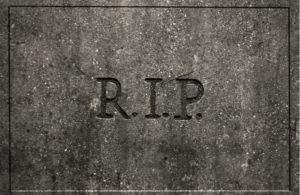If you’re a Rush fan you’ve probably been asked a couple of questions. One: “Why do you love them so much?” Two: “Is that a girl singing?”
But that goes with the territory of being a Rush fan, because being a fan is a badge of honor, of sorts, with the humor not being lost on its members: Geddy Lee (vocals/bass/keyboard), Alex Lifeson (lead guitars), and with his passing last week, the late Neil Peart (drums/percussion/lyrics).
You need to be a bit of a music nerd to love and appreciate Rush. It’s not every day you help a band sell 40 million records, fill out countless concert halls, and still be asked: “Is it Rush or Rash?”
Sitting at my desk Friday, my best friend Matt texted me: “RIP Neil Peart” hitting me like a ton of bricks. I had no idea. I gasped “nooo” under my breath and just sat there.
It was over New Year’s break, enjoying some apres-ski at Attitash, that Matt and I were, coincidentally, talking about how (to his daughters’ dismay) he still can’t change the station when a Rush song comes on, purely out of respect and admiration.
Matt was one of my gateways to new music. I’ll never forget when I was 10 or 11 getting a call from him one night, saying, “Hang on, you need to hear this song.” A few seconds later Michael Jackson’s “Beat It” played through my plastic rotary phone. Back then music wasn’t streamed and artists couldn’t tweet “every breath they take.” New music was often supplied by your friends.
Which is why today’s news of Neil Peart’s passing is even more of a shock. Nobody knew he was even sick. He was able to maintain his privacy right up to the very end. Gone at 67, after a brutal three-and-a-half year battle with brain cancer. He leaves behind his wife Carrie, daughter Olivia, parents Glenn and Betty, two sisters Judy and Nancy, and brother Danny.
I didn’t know Peart personally, but never short for words, he made me feel like I did. He wrote seven books, the lyrics for all of Rush’s songs, gave plenty of interviews, and made instructional videos that were as much “verbal instruction” as they were of him playing.
In the Rolling Stone article, “From Rush with Love,” Brian Hiatt writes of Peart, “He aims to fill every minute of his life with as much much-ness as possible, which may also help explain all those 32nd notes.”
We learned that it was when Olivia introduced her dad, Peart, to her young classmates as a “retired drummer,” that Peart, as he explains it, began to think of himself as retired. He was already struggling with being away from her while on tour, the physical rigors that come with touring, and perhaps the tragic memories of his first family.
In 1997, Peart lost his 19-year-old daughter, Selena, in a car crash when she was driving back to college in Toronto. Five months later his first wife, Jackie, died from cancer. Peart left the band and told them to consider him done. He traveled the country on his motorcycle to heal, explaining in Ghost Rider: Travels on the Healing Road:
Without knowing it, I had identified a subtle but important part of the healing process. There would be no peace for me, no life for me, until I learned to forgive life for what it had done to me, forgive others for still being alive, and eventually, forgive myself for being alive.
It was his second wife Carrie, whom he married in 2000 and had Olivia with in 2009, who encouraged him, in 2001, to rejoin Rush. It was a new beginning for the band. A band that started when Geddy Lee and Alex Lifeson were just high school friends.
In the opening to their documentary Rush: Time Stand Still, Lee explains:
When I started in this band I was a kid. Everything about being a kid is hard. You know life is kinda torture when you’re a kid. And the band is the thing that saved me from that torture. So, it becomes your cocoon; becomes a place where you grew up. It becomes the thing that helped mold your identity. And in some ways it’s the thing that gave you your identity. It’s the thing that you got really good at and helped you feel good about yourself.
Peart, in a 2017 interview with Classic Rock:
I was very academic until I discovered drums. Then I was a monomaniac about drumming. I was physically awkward. My ankles were weak, so I couldn’t play any sports. I couldn’t skate and I couldn’t play hockey, which in Canada is like football is in the U.K. And that makes you a pariah as a boy.
Peart’s solo in “YYZ,” on the live album “Exit…Stage Left,” opened the world to a generation of drummers, and soon-to-be drummers, to what was possible behind a drum set and how a drummer should lead a rock and roll band.
Peart, ever the humble professional, drew an imaginary “back line meridian,” front to back, through his drum set and never crossed it to take a bow at the end of a show, choosing instead to quietly exit stage left.
In the documentary, Lifeson says: “The ending never feels like it’s the right time to end.”
In Peart’s last performance with Rush, as if he knew it would be his last one, Peart runs around his drum set, crosses that back line meridian to center stage, wraps his arms around Lifeson and Lee, and takes a bow for the first and very last time.
Thank you Rush.
Thank you Neil Peart.
You will always be remembered as a “Modern-Day Warrior.”
E.J. Smith - Your Survival Guy
Latest posts by E.J. Smith - Your Survival Guy (see all)
- Rule #1: Don’t Lose Money - April 26, 2024
- How Investing in AI Speaks Volumes about You - April 26, 2024
- Microsoft Earnings Jump on AI - April 26, 2024
- Your Survival Guy Breaks Down Boxes, Do You? - April 25, 2024
- Oracle’s Vision for the Future—Larry Ellison Keynote - April 25, 2024
















